Arctic areas, as intrinsically challenging operating areas, require a knowledge of Arctic conditions and the impacts of long distances on activities. In recent years, considerable development work has been conducted in the circular economy field.
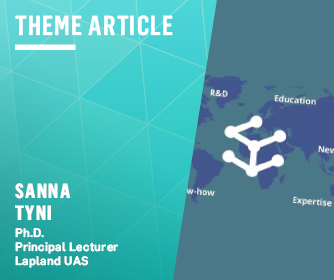

Arctic areas, as intrinsically challenging operating areas, require a knowledge of Arctic conditions and the impacts of long distances on activities. In recent years, considerable development work has been conducted in the circular economy field.
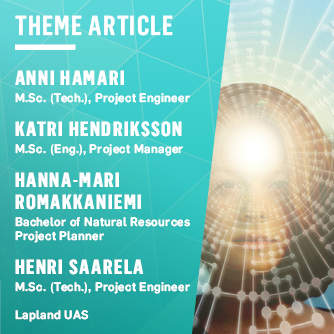
Unless circular economy is explained in a way that is understandable, people may think it equals just recycling. Sea Lapland’s Resource Intelligence project challenges the region to think in cycles.
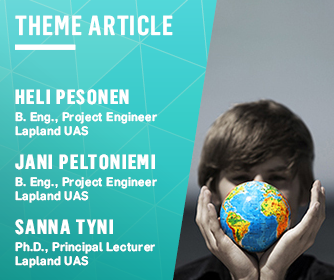
Industrial circular economy has become one of the Lapland’s top areas of expertise and an important part of Lapland’s smart specialisation strategy. The strengthening of circular economy has progressed from the operational phase to the implementation phase.
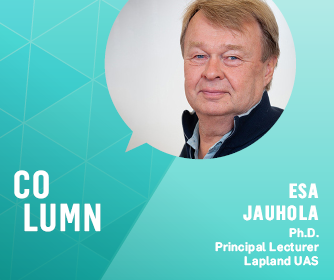
Today, networking between individuals and organizations more often takes place digitally. For small firms it is a good way to expand the partnerships and to find new customers. My wish is that also in future, Lapland UAS, together with partners, will look to the future and support cross-border projects and educational programmes where the young generation learns about the opportunities of the European Arctic.
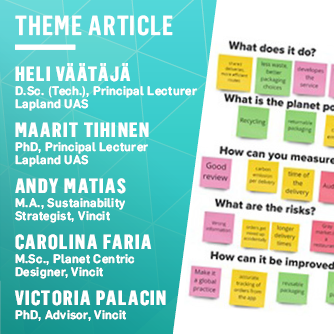
A novel method – Planet-Centric Design – combines service design with systems thinking. The Idea is to increase master degree students’ awareness of sustainability in the design of new services and business concepts. Based on the student feedback, the implementation of the course was successful.
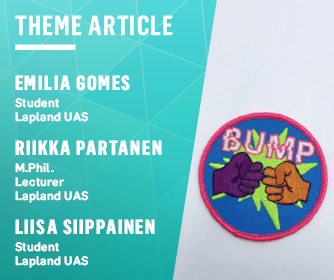
International students often do not seem to be given the chance to actually get acquainted with local Finnish people, as they instead opt to interact and experience local sights with other non-native students in the end. The Culture Bump initiative is to make planners and participants from different countries and cultures interact with one another.
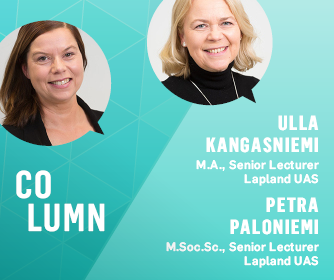
To Lapland UAS, It is important to have continuous discussions and cooperation with companies and organisations in order to be able to follow the latest trends and recognize weak signals which will have impact on the whole tourism industry.
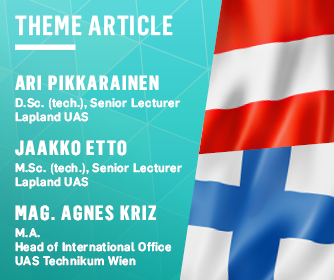
The cooperation between UAS Technikum Wien and Lapland UAS facilitates student and staff exchange and networking. Over the years, the cooperation has evolved over various fields and formats.
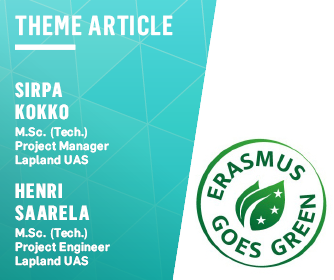
Erasmus Goes Green -project finda solutions to reduce the transport-related carbon footprint of higher education students and staff taking part in Erasmus mobility. When it comes to Finland, Lapland and carbon footprint, we cannot change our remote geographical location in Europe. What we can do, however, is to provide exchange students a country with a well working public transportation system.
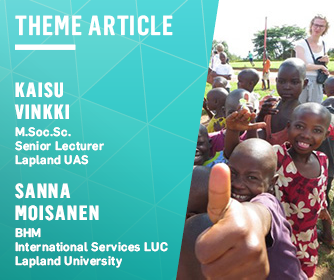
Health Africa Network comprises of eight Universities of Applied Sciences in the fields of Health Care, Social Work and Nutrition in Finland and two partner universities in Kenya and Uganda. Each year International Services of Lapland UAS provides exchange opportunities for students and staff of health care and social services.
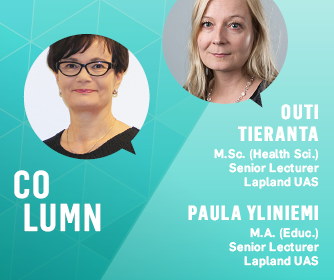
It is important for nursing teachers to meet other European colleagues about curricula, the content of the studies and pedagogical solutions. Also the comparison and harmonization of assessment methods and curricula are important issues.
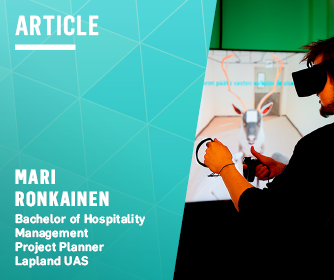
Virtual Slaughterhouse is a new innovation. This learning environment can easily be adapted internationally for the slaughter of other animals, for example, sheep.
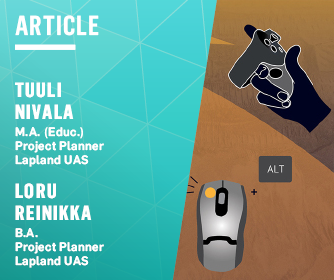
Field practice is perhaps the most efficient way for practical learning, but even in practical fields, theory and know-how concepts are relevant part of the education. In the Migael-project we have tackled on this issue from both perspectives, by creating gamified practices for both hands-on-training and teaching theoretical concepts.
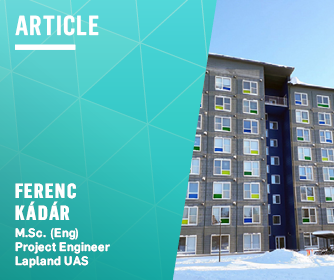
DAS Kelo is an eight-storey student apartment building with a CLT structure, the first storey being made of concrete. It acts as a demonstration building in the Tall Wood project and LaplandUAS is researching it. For monitoring and collecting data, new-generation IoT sensors are used.
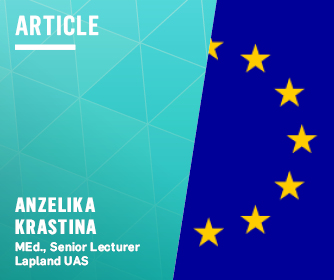
At the moment one will find more than fifty different EU Funding programmes. With built EU project management competence among regional actors in Lapland, it is expected that in the future there will be better understanding about EU external funding and how organisations can apply for it.
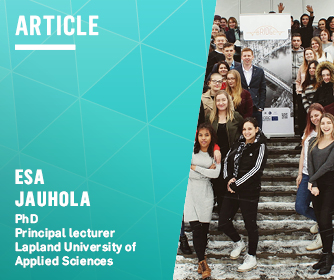
Higher Education Institutions have an essential role of virtual bridge building in the Arctic Europe. The Kolarctic Bridge project builds bridges on different levels, between universities, teachers and other employees, firms, students and regions.
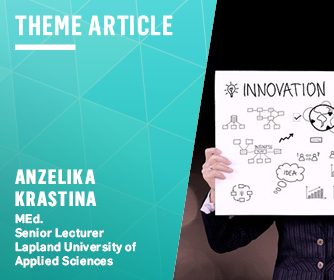
New urgent objective of international business training at Lapland UAS is to increase know-how of entrepreneurs (current and future), and businesses, to become more resilient to climate change with the competence to create new business models aiming to meet Sustainable Development Goals or SDG.
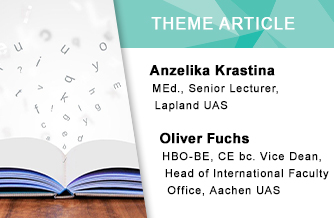
The future is about more innovative partnerships to help our students to advance and succeed in the future worklife. Isolation of single universities in a world of complex learning systems will seriously limit potential and talents of students.